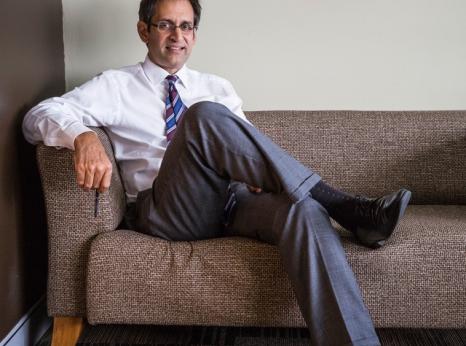Fiji: Lawyer Faces Contempt Proceedings

On 27 June 2022, Fiji’s Attorney General filed charges for contempt of court against local senior lawyer Richard Naidu for highlighting on social media an error in a court judgment where the word ‘injection’ was used instead of ‘injunction’. Amnesty International and CIVICUS believe that the charges are an excessive and politically motivated response to pointing out a spelling error in a court judgment and violate the right to freedom of expression.
The Attorney General acknowledged that the error pointed out by Richard Naidu was indeed a spelling mistake. He went on to claim that Richard Naidu’s post was malicious and invited others to mock the judiciary, referencing the comments and responses from others on social media. Amnesty International and CIVICUS oppose the use of contempt of court or similar accusations used by the authorities to stifle legitimate criticism and the exchange of opinions and information deemed to amount to “scandalizing the court” because this notion is inherently vague, and when it is used in this way, incompatible with the right to freedom of expression, and not necessary for the protection of legitimate public interests (including the orderly proceedings of a court or the judicial process). This type of contempt of court accusation is also subject to misuse, with penalties including large fines and imprisonment.
Under international human rights law and standards, the right to freedom of expression is protected. This right includes being allowed to make comments that may be regarded as critical, or even deeply offensive of government institutions, including the judiciary. Any restrictions on this right, including the threat of prosecution and punishment for “contempt of court”, must therefore be clearly provided for by law, and demonstrably necessary and proportionate for the purpose of protecting specified and legitimate public interests or the rights or reputations of others.
Pursuing a lawyer with criminal or administrative punishment for pointing out accurately on social media a spelling mistake in a public court judgment is manifestly disproportionate and a violation of his right to exercise his freedom of expression. It could also be seen as an act of intimidation or harassment. Fiji’s civic space rating remains ‘obstructed’ according to the CIVICUS Monitor, a research tool the NGO uses to track the state of civil society and civic freedoms in 196 countries.
Naidu faces hefty fines and possible imprisonment should he be convicted of the offences. Other laws used to stifle freedoms include sedition provisions in the Crimes Act as well as the Public Order (Amendment) Act 2014 that have been used to target journalists, activists and government critics, while other sections of the Public Order Act have been used to arbitrarily restrict peaceful protests. The recent contempt charge undermines the independence of lawyers and the legal profession and thereby the right to a fair trial and may have a chilling effect on freedom of expression. This is contrary to the government’s duty to ensure that lawyers are able to perform their professional duties, which include scrutiny of courts, safely and without any threat, intimidation or harassment.